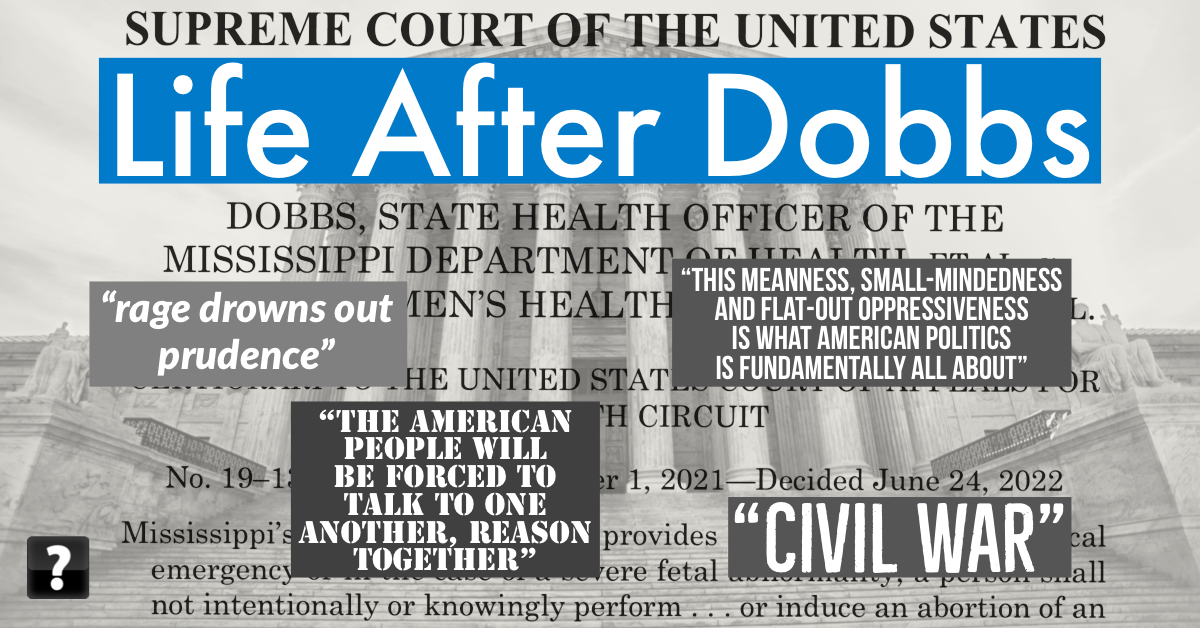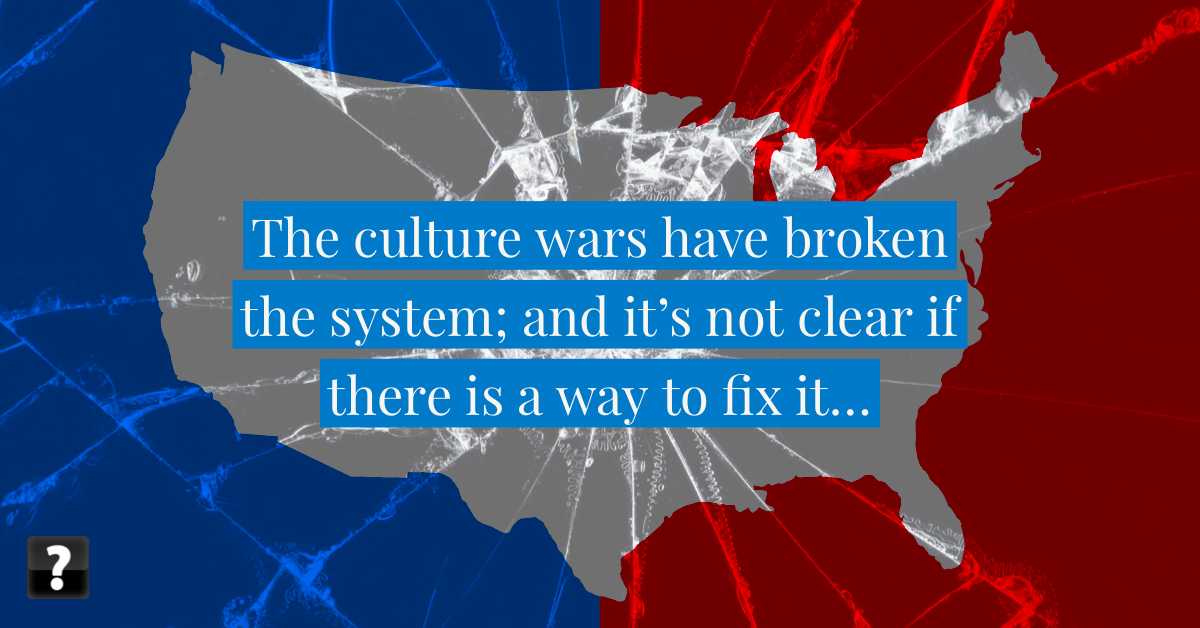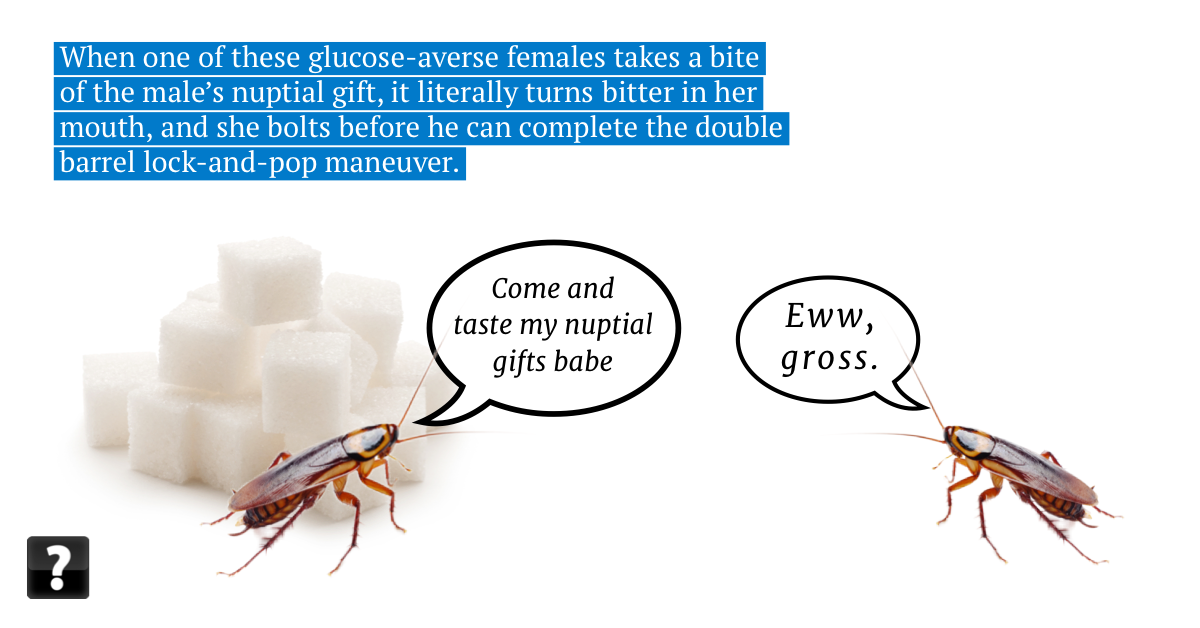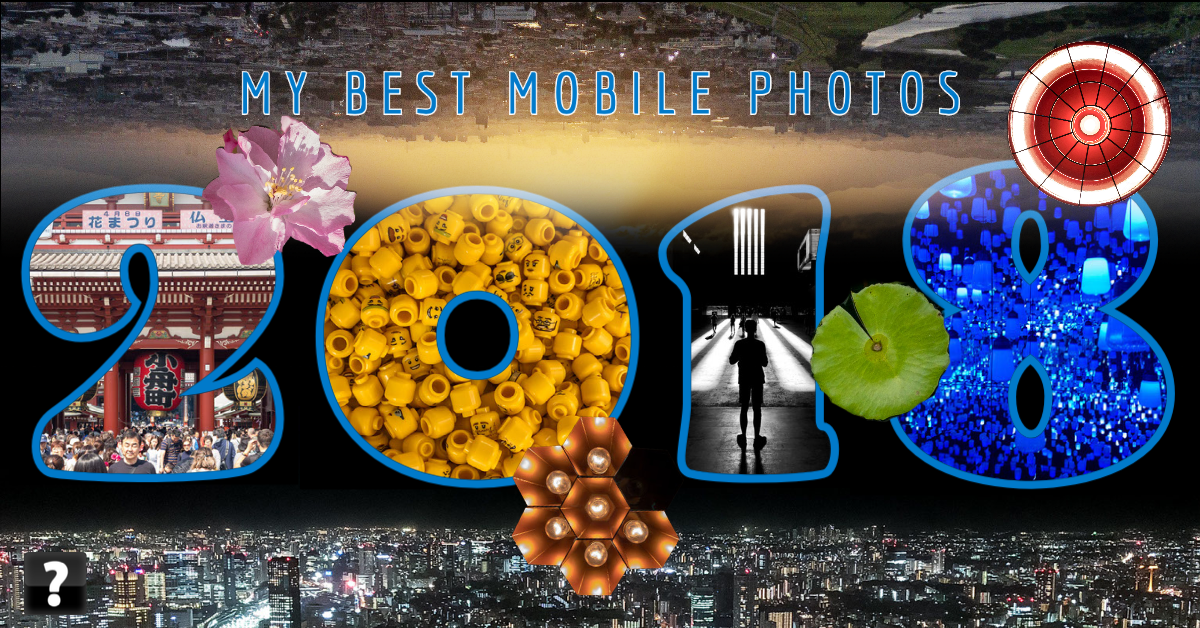In the day after the Dobbs ruling was formally published, POLITICO ran an article full of statements from various thinkers on the potential impact of Dobbs. POLITICO is a very left leaning site, but there are some quotes from pro-life people. The opinions range from bleak “there will be civil war” (from an opinion that reads as a hypothetical future paralleling the the next 10 years with the 10 years leading up to the US Civil War) to hopeful (opinions which to me sound extremely naïve, fairy tale ending, wishful thinking, in the afterglow of victory.)
What I fear most is that the rollback of Roe will confirm for younger Americans, those who don’t remember the ’60s or ’70s, that this meanness, small-mindedness and flat-out oppressiveness is what American politics is fundamentally all about — and that movements for collective good are on the fringe, a pipe dream. With this view they will not assume, as I did, that good change is a hard fight but in a democracy is inevitable. They won’t fundamentally see this country as a democracy. And that’s chilling.
Erin Aubry Kaplan
I can hardly remember a time when that was not the way of it. I expect everyone things “it used to be better” not really understanding how it was before they were old enough to remember but I do see the straight line from the 1990’s to today. Bob Dole and his Rush Limbaugh hypnotized legions.
Litmus tests overwhelm reason, and rage drowns out prudence.
Charles Sykes
That just sounds like the status quo. Single issue voting, pushed by single issue, money rich lobbying groups.
What happens when states such as Louisiana treat the decision to obtain an abortion as a criminal homicide. Like many other states, Louisiana allows a bystander to “use force or violence or to kill” if they “reasonably believe” it necessary to protect a person. Such “defense of others” provisions in criminal codes, on their face, would allow someone to use force — even deadly force — to stop a woman crossing state lines to secure an abortion. That is, it would be perfectly lawful to draw a firearm on a woman traveling outside the state to get medical care.
Aziz Huq
That’s from a law professor. And given that anti-abortion and pro-gun Venn diagram is just a circle… Totally plausible. Gives the lie to the “pro-life” label. They don’t care about life. They care about abortion, they have been whipped into a rabid frenzy by a fanatical few who’s focus is —was now— on overturning Roe. “Pro-life” would imply they would be fighting for other things, like abolition of the death penalty.
On the “pro-life” side. I have to admit I read their statements and I feel like “wow” these people are crazy… but they worked hard over decades and they got what they wanted. It’s more scary crazy than funny crazy.
Many of these young people can’t imagine a world in which abortion is illegal. But this disregard for human life and family has been a wrecking ball to our society. Easy access to abortion has fostered a culture of people who have lost respect for the dignity of their own lives and the lives of those around them.
Kristan Hawkins
This is the most self-propagandizing (that’s a word?) sounding one to me. Moving on, this one is less crazy sounding, more thought out and also a bit depressing. Basically arguing that the battle lines were drawn long ago and nothing will change just because the Supreme Court actually overturned Roe:
Abortion, like guns, has been at the center of our culture war debates for decades. The data suggest that voters who were going to be motivated by those issues — for or against — have already been voting and have already sorted themselves into their respective parties. It’s hard to see how a Supreme Court decision will change that’s
Sarah Isgur
And this guy just sounds delusional… I can’t imagine American’s learning to “talk to each other” about divergent political issues. My opinion of the average American is much to low, we have fallen too far, too many people bought into their own tribes political propaganda about the other side, about all-or-nothing positions.
[W]ithout Roe and Casey, over the next 10 years, the American people will be forced to talk to one another, reason together and learn that their political opponents are not enemies, but people of good will who are trying to care rightly for those they love.
O. Charter Snead
And Finally:
Abortion opponents will not be appeased until abortion is entirely eliminated from our country, and they will without a doubt force this onto the entire nation should they ever gain full control of all three chambers of government.
Robin Marty
That sounds about right, overturning Roe was always just one step. Now they need to get it outlawed everywhere, state-by-state if they can’t get a national ban. As several of the writes note, the next logical step is a “Fetal Personhood” ruling or amendment.















